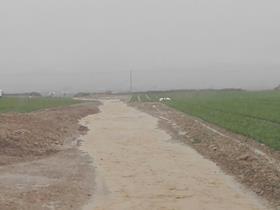
British supermarkets have signed contracts with Spanish suppliers earlier than normal this season in a bid to avoid last year's weather-related supply crisis on various salad veg lines.
Many round tomato contracts for 2018 are already reported to have been agreed, with some supermarket buyers thought to have paid more to secure an early deal.
Retailers want to avoid further supply issues this season after extremely cold and wet conditions in Spain created shortages in products including courgette, iceberg lettuce, aubergine, peppers and tomatoes last season.
Yields on some crops dropped by as much as 30 per cent in January following the worst flooding, snow and freezing temperatures seen in Murcia for years.
Aldi confirmed that it had agreed contracts with some of its Spanish fresh produce suppliers earlier than usual this season. A spokesperson from the retailer told FPJ: “We have worked with Spanish growers earlier than normal and have been working closely with them to try to ensure the timings are right.”
None of the big four supermarkets, or Aldi’s discount competitor Lidl, responded to FPJ's request for comment.
By signing contracts early, the multiples would help guarantee their share of what could be another reduced crop amid fears that the dry, hot weather in Spain this summer could limit the ground’s ability to soak up excess water, increasing the risk of flooding this time around.
“Incredibly dry and hot summer and ground conditions are far from ideal,” said Reynolds’ senior buyer Matt Jones in a recent market report. “The risk of flooding is real and almost impossible to mitigate.”
Round tomatoes are a particular area of concern as UK production is decreasing and retailers become more reliant on imported produce.
“The British round tomato industry is getting less and less and retailers are securing contracts earlier and earlier in order to protect themselves with crop for next year,” Jones told FPJ.
“British growers are certainly not going to be growing as many round tomatoes next year – they’ll be focusing more on specialities – so it makes sense for the retailers to try to do their deals earlier on imported rather than homegrown crop.”
But Julian Isaacson of salad specialist Quality Produce International (QPI), which supplies the UK market with Spanish-grown produce, said: “It would be logical to assume that some have gone in earlier to make sure they’ve got the volume they need given last season’s weather problems.'
He added: “It could be round tomatoes, it could be other products that they’re securing – I think it’s more of a general thing but it depends on the retailer.”
Despite this eagerness from certain supermarkets to secure earlier deals, many Spanish growers are reportedly reluctant to enter into long-term contracts after last season’s floods, preferring instead to ‘play the market’.
Short supply in January and February sent prices rocketing, particularly in courgettes, and only growers selling off-contract were able to benefit from these price fluctuations.
“If you talk with companies supplying caterers and the like, they don’t really want to sign a contract because of the prices we had last season,” said Rafael Roldán of Almeria-based pepper grower Ejidomar.
“Several companies from the area lost a fortune with their programmes last season, so many would prefer to work with daily prices, instead of fixing them.
“In courgettes, for example, the price of a box was nearly €25 and the programme price was much less than that – maybe they were losing €20 per box.”



